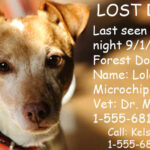Are Chicken Nuggets Bad For Dogs
Are Chicken Nuggets Bad for Dogs? The Truth About this Popular Snack
Chicken nuggets are a favorite fast food item for many people, and often served as a quick and easy snack or meal. However, if you are a dog owner, you may wonder if chicken nuggets are safe for your furry friend to eat. In this article, we will explore the question “Are chicken nuggets bad for dogs?” and provide you with helpful information that can help you make informed decisions about what to feed your canine companion.
The short answer is that chicken nuggets are not inherently toxic to dogs, but they can be harmful in some ways. The main concerns are related to their nutritional content, ingredients, and potential health risks associated with consuming processed foods.
Nutritional Content of Chicken Nuggets
Chicken nuggets are typically made from processed meat that is high in fat, salt, and calories. They may also contain other additives such as preservatives, artificial flavors, colors, and fillers. While some of these ingredients may not be harmful in small amounts, they can add up quickly if your dog eats too many chicken nuggets on a regular basis.
Dogs have different nutritional needs than humans and require a balanced diet that provides them with adequate amounts of protein, fat, carbohydrates, vitamins, and minerals. Feeding your dog too many chicken nuggets can lead to obesity, digestive problems, and other health issues. It is important to remember that dogs should not eat human food as a regular part of their diet.
Ingredients in Chicken Nuggets
Chicken nuggets may also contain ingredients that are toxic or dangerous to dogs. For example, some brands of chicken nuggets use onion or garlic powder as flavorings, which can cause anemia in dogs if consumed in large amounts. Other seasonings or coatings on chicken nuggets may contain xylitol (a sugar substitute), which is highly toxic to dogs and can cause rapid insulin release, seizures, and liver failure.
Additionally, chicken nuggets may be coated in breadcrumbs or other grains that can trigger food allergies or sensitivities in some dogs. Some dogs are also sensitive to gluten, which is found in wheat-based products like bread and pasta. If your dog has a known history of food allergies or sensitivities, it is best to avoid feeding them chicken nuggets or any other processed foods.
Health Risks of Processed Foods
Finally, there are some general health risks associated with feeding your dog processed foods like chicken nuggets. These types of foods can contain high levels of sodium, which can lead to dehydration and increased blood pressure. They may also contain harmful chemicals such as acrylamide (a carcinogen) and heterocyclic amines (pro-inflammatory agents), which have been linked to cancer in humans.
While there is no conclusive evidence that processed foods directly cause cancer in dogs, it is always better to err on the side of caution and feed your dog a diet that is rich in fresh, whole foods that are free of additives and preservatives. This will not only help to maintain their overall health and well-being but also reduce the risk of chronic diseases later in life.
Conclusion
In conclusion, while chicken nuggets may not be toxic to dogs per se, they are not a healthy choice for our furry friends. Feeding your dog too many chicken nuggets can lead to obesity, digestive problems, and other health issues. Moreover, chicken nuggets may contain ingredients that are toxic or dangerous to dogs such as onion powder, garlic powder, xylitol, breadcrumbs, or gluten. Finally, processed foods like chicken nuggets can pose general health risks due to their high levels of salt and potentially harmful chemicals.
If you want to treat your dog to something special from time to time, there are plenty of healthy options available such as fresh fruits and vegetables (e.g., apples, carrots, green beans), lean meats (e.g., chicken breast, turkey), or homemade treats made with wholesome ingredients. Always remember to consult with your veterinarian before making any significant changes to your dog’s diet or feeding routine. Your vet can help you create a customized meal plan that meets your dog’s specific nutritional needs and preferences.
So, next time you’re at the drive-through and tempted to order some chicken nuggets for yourself, think twice before sharing them with your furry friend in the backseat. Your dog will thank you for it!



